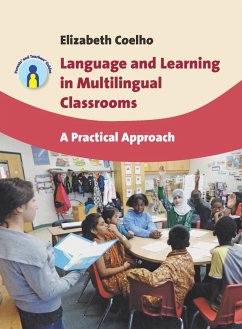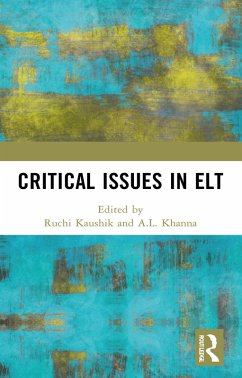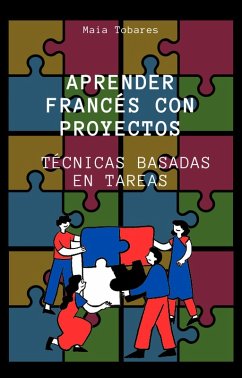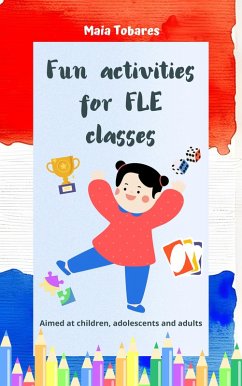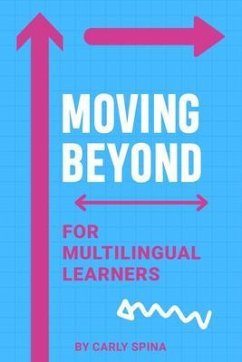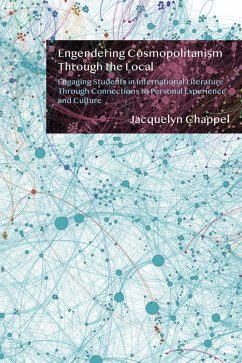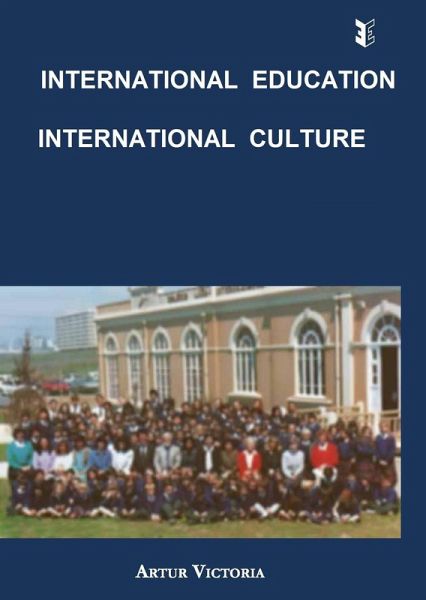
International Education - International Culture (eBook, ePUB)
Versandkostenfrei!
Sofort per Download lieferbar
8,49 €
inkl. MwSt.
Weitere Ausgaben:

PAYBACK Punkte
0 °P sammeln!
Education is more than just instruction; it is a journey towards holistic growth and cultural awareness. With a global perspective, international education offers a multitude of professional opportunities, making it a valuable passport to global employability. It is not just about learning, but also about understanding, individual growth, and the development of essential skills for navigating through life. This book presents a wide range of educational options that are all focused on academic development, but also have a humanistic and social aspect.By taking a broader perspective, it highligh...
Education is more than just instruction; it is a journey towards holistic growth and cultural awareness. With a global perspective, international education offers a multitude of professional opportunities, making it a valuable passport to global employability. It is not just about learning, but also about understanding, individual growth, and the development of essential skills for navigating through life. This book presents a wide range of educational options that are all focused on academic development, but also have a humanistic and social aspect.
By taking a broader perspective, it highlights the importance of education in shaping individuals and their place in the world. It emphasizes the value of learning, rather than simply being taught. This approach encourages critical thinking, creativity, and the development of positive values that are essential for successful integration into society. Multilingualism and multiculturalism are also key themes in this book. It recognizes the importance of language and cultural diversity in today's interconnected world. In addition, it emphasizes the skills that must be developed in children from a young age to prepare them for their journey through life. By instilling these values and skills, this book aims to create well-rounded individuals who are equipped to thrive in an ever-changing global society.
Cultural competency training is an essential skill in today's diverse world. It allows individuals to effectively engage and understand people from different cultural backgrounds. This type of education focuses on developing knowledge, skills, and attitudes that promote cultural sensitivity and competence. By improving awareness, cultural competency training helps to bridge the gaps between people and promotes inclusivity. This can also foster a sense of autonomy and self-discovery, which is a vital part of personal growth. Incorporating cultural competency training into education, along with providing personalized choice options, creates a more well-rounded and inclusive learning environment. Students are able to develop a deeper understanding and appreciation for diversity, while also being able to explore their own interests and talents. This combination promotes a sense of acceptance and understanding, which are essential components in creating a more harmonious and diverse society.Special emphasis on the training of future citizens capable of undertaking activities in this globalized world, showing that teamwork is something that presupposes personal training in which respect and ethical decision-making is fundamental to success.
It's essential for parents, educators, scholars, and all other concerned parties to recognize that teaching knows no boundaries. Instead, it thrives on being dynamic, personalized, and career-oriented. When deciding on their children's schooling, parents must extract a plethora of concepts and choices from this resource, enabling them to select the ideal path for their children's future aspirations.
By taking a broader perspective, it highlights the importance of education in shaping individuals and their place in the world. It emphasizes the value of learning, rather than simply being taught. This approach encourages critical thinking, creativity, and the development of positive values that are essential for successful integration into society. Multilingualism and multiculturalism are also key themes in this book. It recognizes the importance of language and cultural diversity in today's interconnected world. In addition, it emphasizes the skills that must be developed in children from a young age to prepare them for their journey through life. By instilling these values and skills, this book aims to create well-rounded individuals who are equipped to thrive in an ever-changing global society.
Cultural competency training is an essential skill in today's diverse world. It allows individuals to effectively engage and understand people from different cultural backgrounds. This type of education focuses on developing knowledge, skills, and attitudes that promote cultural sensitivity and competence. By improving awareness, cultural competency training helps to bridge the gaps between people and promotes inclusivity. This can also foster a sense of autonomy and self-discovery, which is a vital part of personal growth. Incorporating cultural competency training into education, along with providing personalized choice options, creates a more well-rounded and inclusive learning environment. Students are able to develop a deeper understanding and appreciation for diversity, while also being able to explore their own interests and talents. This combination promotes a sense of acceptance and understanding, which are essential components in creating a more harmonious and diverse society.Special emphasis on the training of future citizens capable of undertaking activities in this globalized world, showing that teamwork is something that presupposes personal training in which respect and ethical decision-making is fundamental to success.
It's essential for parents, educators, scholars, and all other concerned parties to recognize that teaching knows no boundaries. Instead, it thrives on being dynamic, personalized, and career-oriented. When deciding on their children's schooling, parents must extract a plethora of concepts and choices from this resource, enabling them to select the ideal path for their children's future aspirations.
Dieser Download kann aus rechtlichen Gründen nur mit Rechnungsadresse in A, B, CY, CZ, D, DK, EW, E, FIN, F, GR, H, IRL, I, LT, L, LR, M, NL, PL, P, R, S, SLO, SK ausgeliefert werden.




